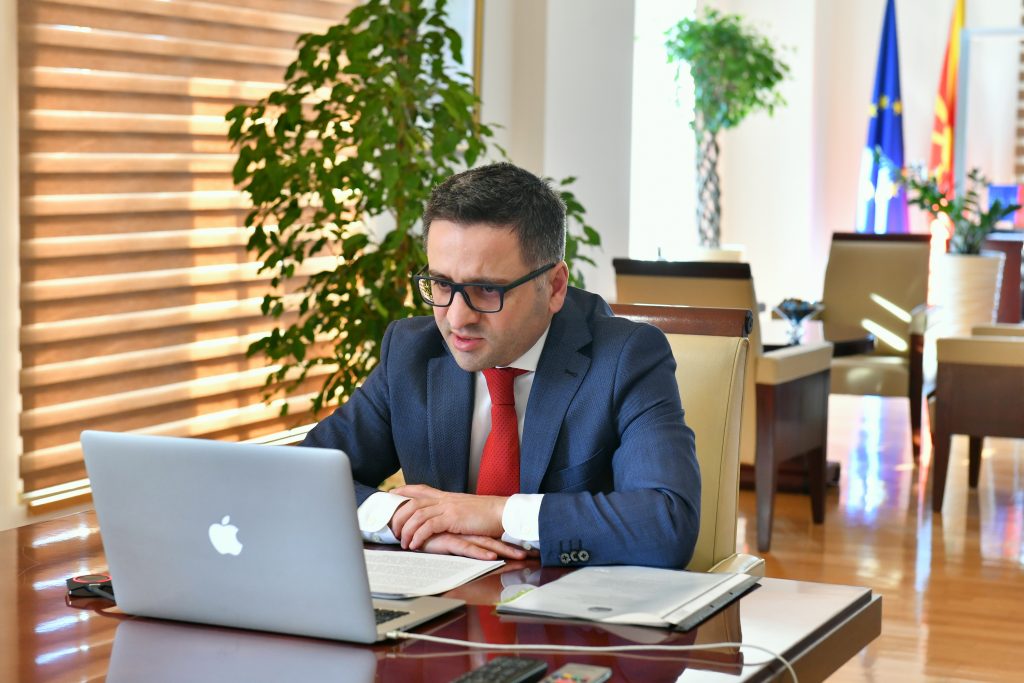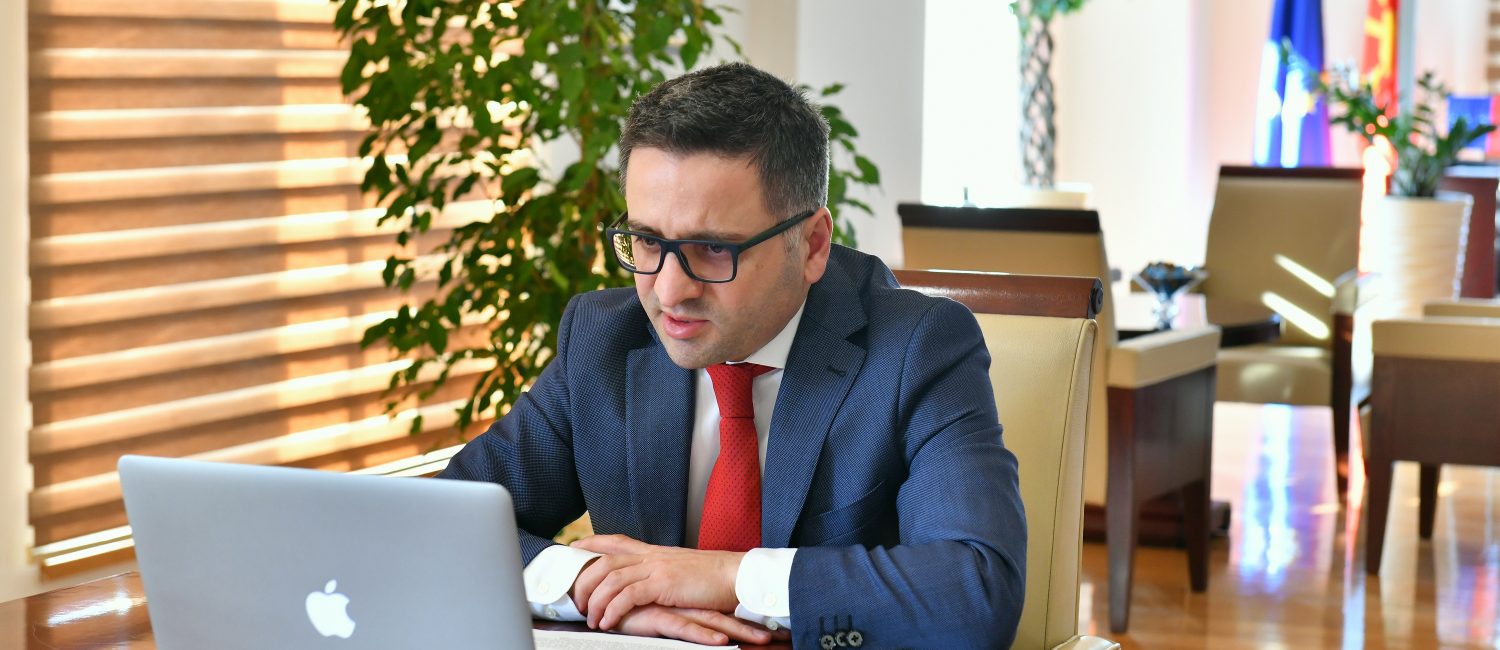14th October 2021, Skopje – Recovery of Macedonian economy is evident, according to the most recent IMF and WB upward projections on this year’s economic growth of 4% and 4.6%, respectively. Medium-term fiscal consolidation, underpinned via the Fiscal Sustainability and Economic Growth Support Plan, the Tax System Reform Strategy, as well as the Growth Acceleration Financing Plan are a sound basis for maintaining fiscal sustainability. At the same time, post-pandemic recovery offers a possibility for speeding up the transition towards green and digital economy.

These were only some of the conclusions of today’s meetings between Minister of Finance, Fatmir Besimi, IMF Executive Director Paul Hilbers, Director of the European Department at the International Monetary Fund, Alfred Kammer, Head of IMF Mission to North Macedonia, Bergljot Bjornson Barkbu, IMF Regional Resident Representative for Western Balkans, Stephanie Eble, Governor of the National Bank, Anita Angelovska Bezhoska and other official representatives, held within the Autumn IMF/WB Meetings.
What was discussed and welcomed during the meeting were the measures undertaken by the Government, geared towards coping with the pandemic and providing for sooner economic recovery.
Minister of Finance pointed out that many high-frequency indicators point out to economic recovery. During the second quarter of 2021, real GDP picked up by 13.1% on annual basis, by which the country practically managed to exit the recession induced by COVID-19. Export of goods and services grew by 45% in real terms, whereby unemployment rate continued to decline, reaching 15.9%.
Minister of Finance stressed that according to the projections made by the Government and Ministry of Finance, this year’s GDP growth will account for 4.1%, however, the positive trends in the second quarter, as well as the macroeconomic developments in the third and the fourth quarter may lead to ending this year with a higher GDP growth than the projected one.
“North Macedonia is focused on better absorption of the traditional financial instruments and introduction of innovative ones, geared towards supporting investment private and public sector projects, by mobilizing budget funds, resources from official creditors, as well as funds from the development partners. Government will issue development bonds, green bonds and project bonds, which will be available not only to the major investors but also the citizens, who will be given the opportunity to invest their savings in reliable investments, with positive multiplier effects in several priority areas of the economy”, Minister of Finance pointed out.
In addition, as he stressed, conditions will be created for increasing production, whereby the implementation of the digital and the green agenda will providing for making the economy more competitive, inclusive and sustainable.
“At the same time, fiscal consolidation will provide for uninterrupted financing of sustainable and inclusive growth, which will be realized through improved management of public and private sector investment projects, as well as support by the private sector”, Minister of Finance pointed out.
Thereby, he emphasized that macroeconomic and sectoral trends will continue to be attentively monitored, as well as that the Government is aware of the challenges, thus planning to continue to extend the support to the affected citizens and companies, while maintaining the fiscal consolidation in the medium-term.
During the Autumn Meetings, IMF representatives pointed out that the Governments should have clear and credible medium-term fiscal policy, which will provide for fiscal sustainability. Support measures should not be prematurely withdrawn – to limit scarring effects – but where feasible, they should also be targeted and time-restricted.
Fiscal consolidation, rebuilding of the reserves (buffers), measures aimed at underpinning the economy, as well as the digitalization and the green agenda were one of the crucial points explained by Deputy Prime Minister and Minister of Finance of Belgium, Vincent Van Peteghem, on behalf of 16 countries, among which our country as well, during his address at the 44-th Monetary and Financial Committee, held within the Annual Meetings.
Peteghem pointed out that the focus of fiscal policy should gradually shift towards rebuilding buffers, especially where public debt levels are already elevated, so as to be able to confront the next crisis or shock and in view of longer-term challenges such as the digital transformation and the transition towards a carbon-neutral economy.
“In countries where economic activity is still heavily constrained by the pandemic and the associated containment policies and where fiscal space exists, support measures should not be prematurely withdrawn – to limit scarring effects. At the same time, Governments need to draw out and clearly communicate a credible medium‑term trajectory for fiscal policy, which by itself may help to bolster confidence and create additional budgetary room, as well as to ensure fiscal sustainability, he said, adding that the most vulnerable and fiscally constrained economies may require additional multilateral financial assistance.
During the meeting the Resolution of the IMF Board of Governors was also welcomed, pertaining to the allocation of Special Drawing Rights to IMF Member States, in the equivalent amount of Denar 650 billion, whereby the Special Drawing Rights of 134.47 million (equivalent to around US$ 191 million as budget support) were allocated to our country. The Law, which will provide for using the funds from the General Allocation of Special Drawing Rights was approved by the Government, pending parliamentary procedure at the moment.
















